England Day 5: The Nerdiest London Exploration
My inner nerd
was satisfied today, as we walked around London to see some of the most iconic
pieces of the city’s storied literary and film history. We started the day
early and did more exploring of different parts of the city that we had not yet
been to. Once again, I was happy to walk instead of take the tube, because who
wants to look at a dark hole in the ground when we could be looking at some
amazing pieces of London?
The day began
fairly early, as we wanted to have time to take the Tube to King’s Cross
Station and shop at Platform 9¾—a Harry
Potter fan’s dream. Though the store is a lot smaller and less exciting
than I thought it might be (it is no Universal or Harry Potter London Studio),
I still loved seeing the décor and props like owl cages hanging from the
ceiling, blue and gold wallpaper, and a whole cabinet full of model Hogwarts
Expresses, Time Turners, and magical money. There were also stands for each
house, which had a variety of items like sweaters, patches, notebooks, socks,
and mugs.
Though I would
have loved a Ravenclaw sweater, it is so hard for me to commit to an article of
clothing as a souvenir. I settled instead on purchasing a Ravenclaw patch and some awesome wax seals—one
with the Hogwarts logo and one with the Platform 9¾ logo on. I also got a
tshirt for my brother, a keychain for my dad, a miniature Gryffindor mug for my
mom, and four replica Hogwarts Express tickets. I might eventually order an
official Ravenclaw sweater… Maybe.
After doing our
shopping, we got in line to take some pictures of the Platform 9¾ wall just
outside the shop. There sits a trolley about halfway through the magical wall,
where tourists can pop on a scarf of their choice and pretend they are headed
to Hogwarts. I might hate doing tourist things like this, but with something as
important to my life as Harry Potter,
I had to do it. I threw on my Ravenclaw scarf and pretended to be floating into
the wall on my way to magic school. The pictures turned out pretty well—even if
I did have to act strangely for a few seconds.
Our first mission
over, we took some time to walk around the actual station of King’s Cross. Fun
fact that most people probably know by now: the station used in the first HP film was not actually King’s Cross,
because the outside of the station is actually not that pretty. It is basically
just an unassuming brick building. Instead, they used the much more interesting
neighbor St. Pancras Station, whose beautiful spires and detailed façade
definitely make for a better movie set. We walked across the street to see the
station more closely, and were not disappointed in seeing it up close. My
bucket list now includes staying at a room in the St. Pancras International
Hotel, and driving there in the adorable purple car we saw parked in front of
it. It was truly a magical sight.
Next, we mapped
our route to get to 221B Baker Street. Our walk started with a quick stop by
The British Library, which turned out not only to be an unattractive
mid-century modern brick building, but also to be extremely busy. The line to
get into the library went all the way across the small courtyard and would have
taken much more time than we had to give. So, we took some photos of the
outside and then continued on through a commercial district toward Baker
Street.
On that walk, we
were met by few people and many interesting places. We walked by buildings like
St. Pancras Church (with incredible Greek style statue columns), One Marylebone
(a former Anglican church now used as a beautiful private event venue and
museum), Park Square East (one of the largest private squares in London), the
Royal Acedemy of Music (the oldest music school in Britain, where we heard a
pianist practicing from the third floor open window), St. Marylebone Parish
Church (from which the entire area of Marylebone gets its name), Madame
Tussauds (completely garish and too touristy for us, but definitely an
interesting landmark to see), and the plaque of the first underground location.
It really is amazing what just walking around can find.
Finally, we
arrived at the Sherlock Holmes Museum. This small building on Baker Street
houses props and famous symbols from all different representations of Sherlock:
the original novels, the Robert Downey Jr. movie, the Cumberbatch series, etc.
We did not purchase tickets to the actual museum because we did not have time
to take the tour, but the perfect set recreation of the original series looked
absolutely amazing in photos. Pipes, hats, and pocket watches filled the tiny
shop, as well as prints, matchbooks, and music boxes. It was a flashback into
Victorian London that every Holmes fan would enjoy. And, it is actually housed
at 221B Baker Street, the home of the fictional Sherlock. Though the atmosphere
surrounding the house might have changed since Sir Arthur Cannon Doyle’s memory
of it, I was so happy to see the real place where so many of my favorite
fictional moments take place.
After a lot of
walking, we were happy to grab the Baker Street tube back to Piccadilly for a
quick rest. We stopped at a recommended doughnut shop called Crosstown Doughnuts
to grab a quick snack before heading back to the hotel. Our next stop, The
National Gallery, was about a five-minute walk from our hotel, so we decided to
take a break and finish our doughnuts before heading out again. The doughnut
was delicious, but I would recommend a plain frosted or filled one over the one
with sprinkles—the icing on mine was stiff in order to hold on the beautiful
but unnecessary sprinkles. The others looked just as delicious and would
probably be more worth the price.
After our quick
rest in the room, we headed over to the National Portrait Gallery. This was
recommended to us by our hosts in Salisbury as a really cool place to go to see
the Tudor portraits all the way up to the modern day Windsor family. As soon as
I heard there would be Tudor portraits, I was all about checking it out. But it
turns out there are more portraits in this building than anyone could ever hope
for—scientists, authors, musicians, politicians, artists, and rulers. There
really is something for everyone in this huge building.
We found the
Tudor and Elizabethan room first, as we were both excited to see the ancient
portraits of British monarchs. On the walls hung King Henry I, IV, V, VI, VII, and
VIII, King John, Anne Boleyn, Queen Elizabeth I, Katherine of Aragon, Queen
Mary, Thomas Cromwell, Sir Thomas Moore, a beautiful full body of Katherine
Parr (Henry VIII’s sixth wife), Jane Seymour (Henry VIII’s third wife), King
Edward IV, King Richard II, and many more.
It was
absolutely fascinating to see all of these portraits not only because they are
an important part of English history, but because they were the real thing. They are not replicas,
prints, or reproductions. They are truly the same canvases that hung in the
same rooms as these famous monarchs. To me, seeing the stunning image of one of
my greatest heroes, Queen Elizabeth I, was beyond exciting. I was living the
dream and enjoying every single second of it.
We then walked
around more of the museum, wandering in and out of rooms we thought would be
interesting. We found a hall of scientists, portraits of John Keats and Seamus
Heaney, the only known original portrait of Jane Austen, James Joyce, Beatrix
Potter, and huge paintings of the royal families throughout history. There were
even some sculptures mixed in occasionally—one awesome one was of a conductor
called Sir Thomas Beecham. He was a conductor of the London Philharmonic during
the early 20th century, was considered Britain’s first international
conductor, and used his family money to finance operas. It still astonishes me
how much one can learn after seeing a fascinating portrait.
We then visited
a room very special to me: the Charlotte Brontë exhibition. The Brontë sisters
(Charlotte, Emily, and Anne) are very near to my heart. Similarly to Jane
Austen, the Brontës helped pave the way for other women authors to gain serious
literary merit in their Victorian world dominated by men. Without them and
their novels, who knows what could have happened to other famous women like
Mary Shelley, Louisa May Alcott, and George Elliot?
Anyway, I have
read and loved many Brontë novels, so seeing a whole room dedicated to the
eldest sister really inspired me. On the walls hung her portraits and portraits
of her siblings, and in the cases were letters, manuscripts, and paintings done
by Charlotte. Highlights of the exhibit included the portrait of the three
sisters painted by their brother Branwell, and a painting done by Charlotte of
their childhood home on the moors. But the coolest things in the room were the
tiny books written by the siblings about their imaginary world. The family was
well known to have been creative, and the four siblings were always writing
stories about the magical worlds they created. The surviving books are no more
than five inches tall, but hold the earliest examples of Brontë creative
literature that we have. That is an incredible piece of literary history. I am
so happy to have seen them.
To get to the
specialty exhibit, we next walked through the modern wing of the museum. This
displays portraits of all sorts of public figures throughout contemporary
British history. Included are people like Paul McCartney, Alan Rickman, Kazuo
Ishiguro, Joan Collins, Helen Mirren, Ian McKellan, and JK Rowling. Also in
this wing are all of the recent monarchs and members of the Royal Family,
including Princess Diana, her children, and Queen Elizabeth II. I got to stand
in front of her portrait and take a picture with her. Even if she isn’t really
next to me, it was still an honor to get a photo with one of the most
influential people in my life. I would love to meet her for real some day, but
for now, this will do as a cherished memory.
Our final stop
in the Portrait Gallery was the exhibition on black photography. Unfortunately,
it was not very big, nor very well described. Luckily for me, the entire
description is available online and does a much better job of outlining the
exhibit. The purpose is, through photographic portraits, to highlight
lesser-known aspects of black life in nineteenth and twentieth century Britain.
It is meant to showcase the black presence in Britain before 1948, when major
immigration happened.
Personally, I
found this fascinating, because this section of history is not well known to
anyone and certainly was never taught in American schools. I walked around
looking at the photos, completely mesmerized by their beauty. In a time as
intense as this, I thought this exhibit a poignant example of the importance of
history and documentation in shaping the future. The most fascinating piece was
a huge book of proofs, each labeled with name and date and number. There are so
many photos left to be discovered, and I want to be part of the process of
figuring it all out. A part of giving stories back to those who deserve them.
Successfully
finished with the Portrait Gallery, we headed around the block to the original
National Gallery. There, we accidentally happened upon Trafalgar Square—a bit
of a shock, but amazing nonetheless. We were stopped by multiple buskers and
scalpers, one of which called me Miss America. I thought that was funny.
We walked up the
giant steps into the immense entryway and knew we were in for a daunting task.
Both tired by this point, we decided to find the impressionist wing and see
what we could see on the way there. The building itself is also a work of art,
even besides the actual canvases that live there—multiple mythological mosaics
line the floors, golden pillars prop up detailed domes and filigreed archways.
The entire time, I felt like I had walked into a movie set. As cool as
Milwaukee is, there is absolutely no history like we saw today. I was
entranced.
We walked
through room after room, looking at paintings by van Gough, Renoir, Degas, and
Monet, Rembrandt, Raphael, and Michelangelo. Again, I could not believe I was
seeing these paintings right in front of me. An original van Gough three feet
away. Almost within reach. I learned about so many different artists that I did
not know I liked, as well as the names of styles that I already knew about but
could not describe accurately. I had an absolutely great time just strolling through
to look at great art—something I rarely get the chance to do.
After a quick
stop in Trafalgar Square to take some photos, we started walking through Soho
to get to our lunch restaurant: Golden Union Fish Bar. It was almost 1PM by
this point, so there was no wait to get a table in the small and relatively
unassuming place. The rest of Soho kind of looks that way, though, so it did
not really surprise me to know that one of the highest rating fish and chips
spots in London lives in what looks like the back alley of a New York street. A
bit of weaving is required when navigating Soho, but eventually, we found the
hidden treasure.
Gold and red are
the colors of Golden Union, and delicious is the word for the food. We wanted
something traditionally English, since their fish and chips is much different
than what we consider “fish fry”. Even though there were more adventurous
options, we decided to split a cod and chips and get a side of mushy peas to
share—the classic London lunch. We waited a little while for it to come out,
but man, was it worth it. Crispy batter, flavorful fish, and perfectly shaped
chips. The peas were not something I would want to eat every day, but definitely
worth the try. We left back into the graffitied streets of Soho full and
extremely happy. I would recommend this place for anyone looking for authentic
fish and chips in the heart of a really creative neighborhood!
Finally full of
food, we walked back to Piccadilly and stopped by the theater to pick up our
tickets for later. Successful in this, we walked back to the hotel to rest for
a few more minutes before getting on the tube once more. This time, we went on
the Piccadilly line out to Earl’s Court to see the only Doctor Who police box
left in London. The Tardis does not open for visitors, but is available for
photos right outside the tube station. I only say this because Diana and I
walked both directions from the station trying to find the stupid box, when it
had been in front of us when we walked out the first time. Who knew a giant
blue cube would be so hard to locate?
Back down to the
station we went, and took the line back to Knightsbridge and followed the signs
to Harrod’s. I was so excited to see such an iconic image of London, and was
confident not to get turned away at the door like so many stories I had heard
before. Leave it to me to look back to make sure the door didn’t need to be
held for anyone behind me, only to run directly into the metal detector in
front of me. The poor security guard asked if I was okay and made sure I didn’t
need anything before letting me go in. Phew. How embarrassing.
We proceeded
through the Cosmetics Hall to get to the clothes on the other side, including
such sections as “Luxury Accessories” and “The Colour Hall”. This store was
unlike anything we have in America—it was packed full of completely designer
merchandise, in a way that made it confusing and disorienting to shop. I almost
never get overwhelmed in a store, but this one did me in. Somehow, we found our
way into the Egyptian Escalator room, a completely over the top, stylized room
complete with sculptures and golden paint. Even if it didn’t go very fast, it
was certainly the most luxurious escalator I’ve ever ridden.
We rode the
crazy escalator all the way up to the top floor, where we walked into “Shoe
Heaven”. This was the most incredible selection of designer footwear I have
ever seen in my entire life—and displayed in a by now expectedly crazy style of
Harrod’s. Golden metallic cases, diamond straps, mirrored walls… each
designer’s salon room had a different interior style. It was absolutely insane.
After a quick
spin through the women’s clothing and a similar sense of claustrophobia and
anxiety, we quickly made our way down to the food on the ground floor. It turns
out we skipped the gift shop and something called the Writing Room, which would
probably have been pretty awesome to see. But the food hall was enough for
us—four different rooms with muraled ceilings, golden filigree, and expensive
fresh and packaged food in every available space. The Chocolate &
Confectionary room was a favorite of ours, but the chicken rotisserie
restaurant smelled very, very good, too. But again, we were getting a little
tired just thinking about having to
traverse any more of the store.
Instead, we
decided to cut our visit short and find Ladurée for some macarons before
leaving. We wove our way through the Fine Jewelry Room, the Fine Watch Room,
and the Wine, Spirits, & Cigars section before finally arriving at Ladurée.
After oogling at all of the impeccably French interior decorations, complete
with marble floors, crystal chandeliers, pastel blue walls, and a luxury
tearoom balcony upstairs, we then turned our attention to the incredible
pastries in the case. We each chose three macarons to take home—I got a rose
petal, a Marie Antoinette tea (rose and honey), and a classic vanilla.
My
favorite actually turned out to be the Marie Antoinette. It is simply a
delicious blend of a subtle rose flavor (which I found too intense in the rose
petal macaron) and the honey and black tea flavors, which balanced out the
bitterness of the rose. It was absolutely delicious, and I wish I had bought
many, many more—even if they were expensive!
From there, we
exited that intense shopping space and hopped back on the tube home. Our day
was almost done! We just needed to change and eat some dinner before walking
across the street—yes, across the street—to Her Majesty’s Theater for our
production of Phantom of the Opera.
We picked our hotel specifically so that we would be close to the theater and
not have to take the tube late at night, which I greatly appreciated even on
our way to the show. Can’t beat a two minute walk to the venue, that’s for
sure.
Even though our
seats weren’t great, we could still see the stage and enjoy the wonderful
music. The cast was phenomenal, and I thought the Phantom was played perfectly.
In contrast to the weirdly loveable character played by Gerard Butler, this
Phantom was appropriately creepy and mean, yet oddly endearing. I do not want
to have a crush on the Phantom, I want to feel badly for him. And I did. The
performance of Carlotta was also stunning. It was the best performance I’ve
seen of a classic show. Out of the many options we could have seen, I am glad
we chose this one.
After the show
ended, we stumbled on our sore feet back across the street to our hotel room. I
am so thankful that we researched well and did as much as we did, no matter how
tiring it was. We saw so much and had a great time just wandering around the
city, ending with an incredible performance. I think I can say we had a once in
a lifetime day!
♥
photo credit Diana Cleveland
































































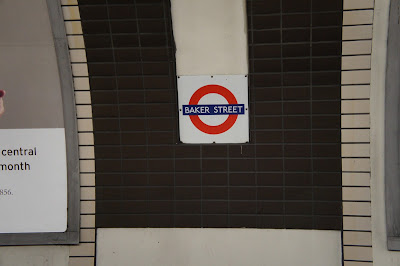


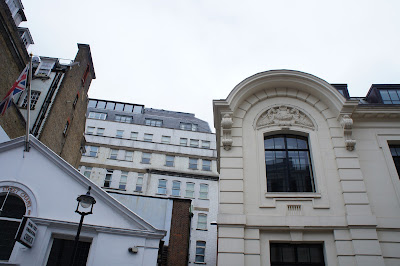






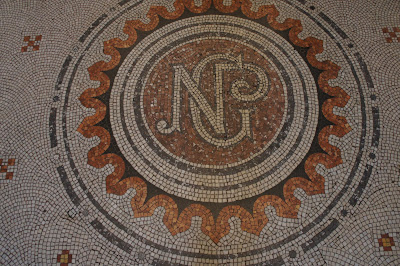








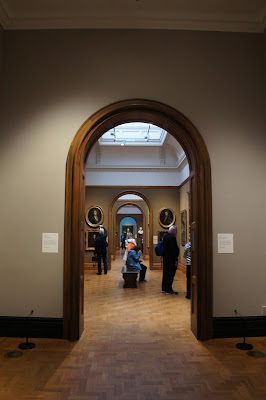





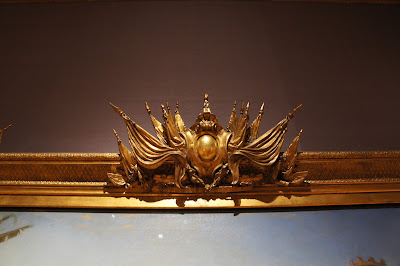















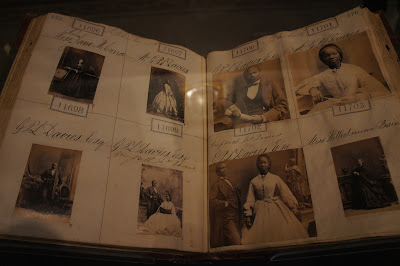






















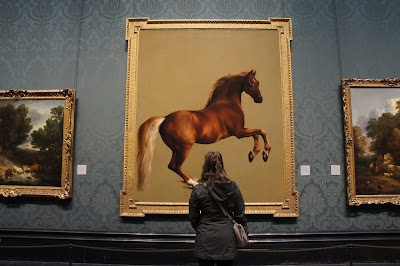



























































No comments:
Post a Comment